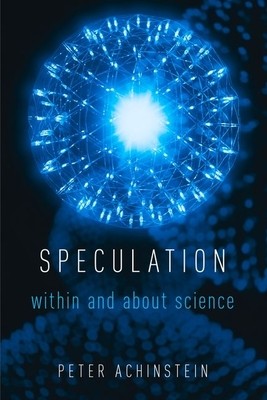
- We will send in 10–14 business days.
- Author: Peter Achinstein
- Publisher: Oxford University Press, USA
- ISBN-10: 0190615052
- ISBN-13: 9780190615055
- Format: 14.5 x 21.3 x 2.8 cm, kieti viršeliai
- Language: English
- SAVE -10% with code: EXTRA
Reviews
Description
Newton urged scientists never to speculate, only to prove by establishing experimental facts. By contrast, Einstein urged scientists to speculate freely, since only daring speculations, not experimental facts, can advance science. Who, if either, is right? Is speculation a legitimate part of science, even in the absence of testing? If so, can speculations be evaluated without testing? How?
To answer these questions it must first be determined what counts as a speculation, a task not usually investigated by those who express strong views about speculation. In Speculation, Peter Achinstein develops the basic idea that speculating involves introducing assumptions, under certain "theorizing" conditions, without knowing that there is evidence for those assumptions. This idea is made precise by utilizing a concept of "evidence" Achinstein has introduced in previous writings and also explains here. With this concept, Achinstein defends a view according to which, by contrast with Newton, speculations are crucial in science, and by contrast with Einstein, they are subject to constraints. The latter include pragmatic ones, reflecting the particular aims of the scientist in speculating, and epistemic ones that are subject to a different standard then "evidence sufficient for belief." This viewpoint is illustrated and evaluated by critically examining historical and contemporaryspeculations in fundamental physics as well as more general speculations within or about science, including these: nature is simple, and simplicity is a sign of truth (Newton, Einstein); a theory can only be tested "holistically" (Duhem and Quine); and there is, and must be, a "Theory of Everything" (string theorists and reductionists).
EXTRA 10 % discount with code: EXTRA
The promotion ends in 23d.06:18:56
The discount code is valid when purchasing from 10 €. Discounts do not stack.
- Author: Peter Achinstein
- Publisher: Oxford University Press, USA
- ISBN-10: 0190615052
- ISBN-13: 9780190615055
- Format: 14.5 x 21.3 x 2.8 cm, kieti viršeliai
- Language: English English
Newton urged scientists never to speculate, only to prove by establishing experimental facts. By contrast, Einstein urged scientists to speculate freely, since only daring speculations, not experimental facts, can advance science. Who, if either, is right? Is speculation a legitimate part of science, even in the absence of testing? If so, can speculations be evaluated without testing? How?
To answer these questions it must first be determined what counts as a speculation, a task not usually investigated by those who express strong views about speculation. In Speculation, Peter Achinstein develops the basic idea that speculating involves introducing assumptions, under certain "theorizing" conditions, without knowing that there is evidence for those assumptions. This idea is made precise by utilizing a concept of "evidence" Achinstein has introduced in previous writings and also explains here. With this concept, Achinstein defends a view according to which, by contrast with Newton, speculations are crucial in science, and by contrast with Einstein, they are subject to constraints. The latter include pragmatic ones, reflecting the particular aims of the scientist in speculating, and epistemic ones that are subject to a different standard then "evidence sufficient for belief." This viewpoint is illustrated and evaluated by critically examining historical and contemporaryspeculations in fundamental physics as well as more general speculations within or about science, including these: nature is simple, and simplicity is a sign of truth (Newton, Einstein); a theory can only be tested "holistically" (Duhem and Quine); and there is, and must be, a "Theory of Everything" (string theorists and reductionists).


Reviews